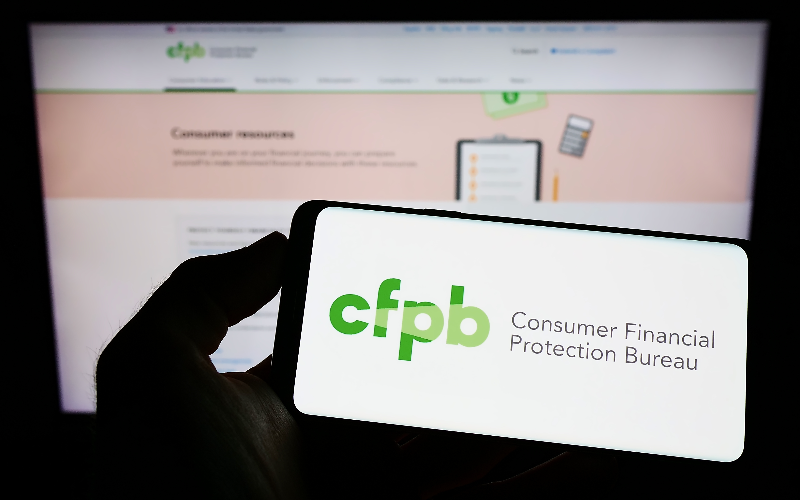CFPB Update: Changes Under a New Administration
Posted by John Trull on December 12, 2024

As the nation anticipates changes to leadership at the Consumer Financial Protection Bureau (CFPB), several candidates have emerged as potential appointees. Among them, Mark Calabria is widely considered the front-runner, given his extensive experience in regulatory reform and his alignment with the anticipated priorities of the incoming administration.
Mark Calabria is an economist and policy expert focused on housing finance and regulatory reform. As Director of the Federal Housing Finance Agency (FHFA) from 2019 to 2021, he led efforts to release Fannie Mae and Freddie Mac from government conservatorship. His past roles include Chief Economist to Vice President Mike Pence and a senior staff member on the U.S. Senate Banking Committee. Currently, Calabria is a senior advisor at Capstone DC, providing insights on housing and finance policies.
Keith Noreika is an Executive Vice President at Patomak Global Partners, and advises financial institutions on compliance and regulatory strategies, including fintech and cryptocurrency. As Acting Comptroller of the Currency in 2017, he streamlined banking supervision. Noreika’s legal expertise includes work at Simpson Thacher & Bartlett LLP and Covington & Burling LLP.
Todd Zywicki is a law professor at George Mason University’s Antonin Scalia Law School and a senior fellow at the Cato Institute. He specializes in consumer credit, bankruptcy, and financial regulation. As chair of the Taskforce on Federal Consumer Financial Law in 2020, he also recommended regulatory updates. Zywicki has been critical of CFPB policies and advocates for more efficient, consumer-focused reforms.
Brian Johnson is a financial services attorney with experience in regulatory and enforcement matters. As a former Deputy Director of the CFPB, he helped shape policy and oversaw enforcement initiatives. Currently, he is a partner at Alston & Bird LLP, where he advises clients on a broad range of consumer financial services issues.
The Future of the CFPB
While some have speculated that the CFPB may face dissolution under a new administration, such an outcome is unlikely due to the logistical and legal challenges involved:
Reassigning Regulations: Eliminating the CFPB would require the reassignment of its regulations to other agencies, a process that involves extensive negotiations and legislative action. Identifying suitable “homes” for these regulations would be time-consuming and complex.
Legislative Hurdles: A lawmaker would need to draft and pass legislation to determine the fate of the CFPB’s regulatory authority. This would face both political and procedural obstacles.
Long-Term Implications: Even if dissolution were pursued, it would be a long-term endeavor. In the meantime, the CFPB’s responsibilities and regulatory powers would need to continue.
Likely Shifts in Priorities
The new administration is expected to reduce the CFPB’s authority rather than eliminate it. Likely changes include:
Adjusting Regulatory Priorities: New leadership may shift the CFPB’s focus away from strict consumer protection measures toward policies aimed at promoting innovation and reducing regulatory burdens on financial institutions. This could involve revising existing rules, delaying implementation of pending regulations, or rolling back measures viewed as overly restrictive.
For example, the recently finalized Overdraft Rule could be revisited or even pulled back as part of a broader regulatory reassessment.
Scaling Back Enforcement: The CFPB’s approach to enforcement may become less aggressive, with fewer large-scale investigations and settlements.
The direction of the CFPB will continue to take shape over the coming months. GoWest will closely monitor these developments, providing updates and insights as the agency’s priorities and strategies evolve.
The CFPB is set for significant change as the incoming administration reshapes its leadership and agenda. While the dissolution of the agency remains improbable, its priorities are expected to shift toward reduced enforcement and regulatory reform. With Mark Calabria as the likely appointee, financial institutions can anticipate a focus on easing regulatory burdens and revisiting existing policies. Additionally, the Association will work with our members to determine which CFPB rules and regulations should be reviewed and reexamined by the Bureau.
If you have any questions about this information, please reach out to Gracie Nelson at [email protected] and John Trull at [email protected]
Posted in Advocacy on the Move, Regulatory Advocacy.





















